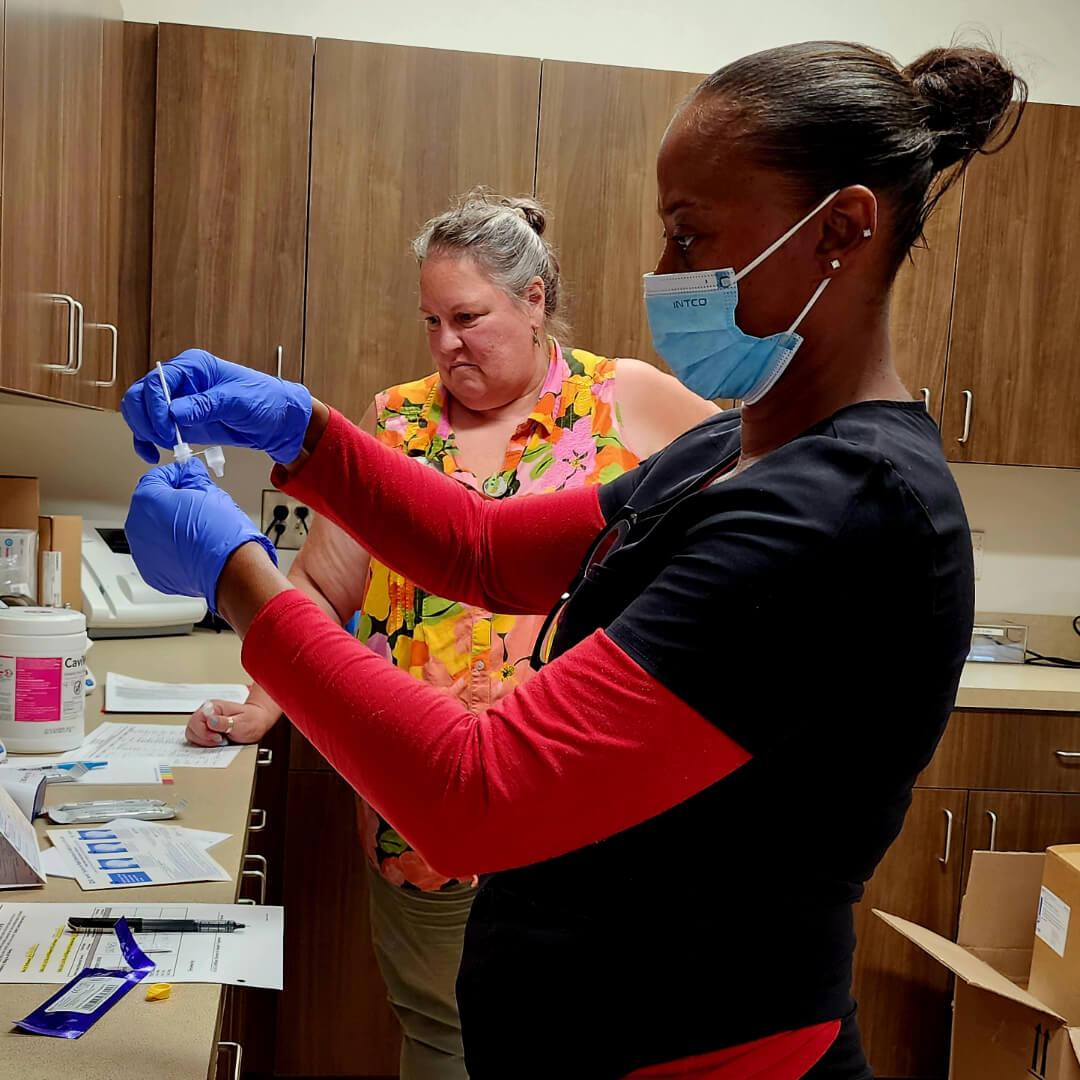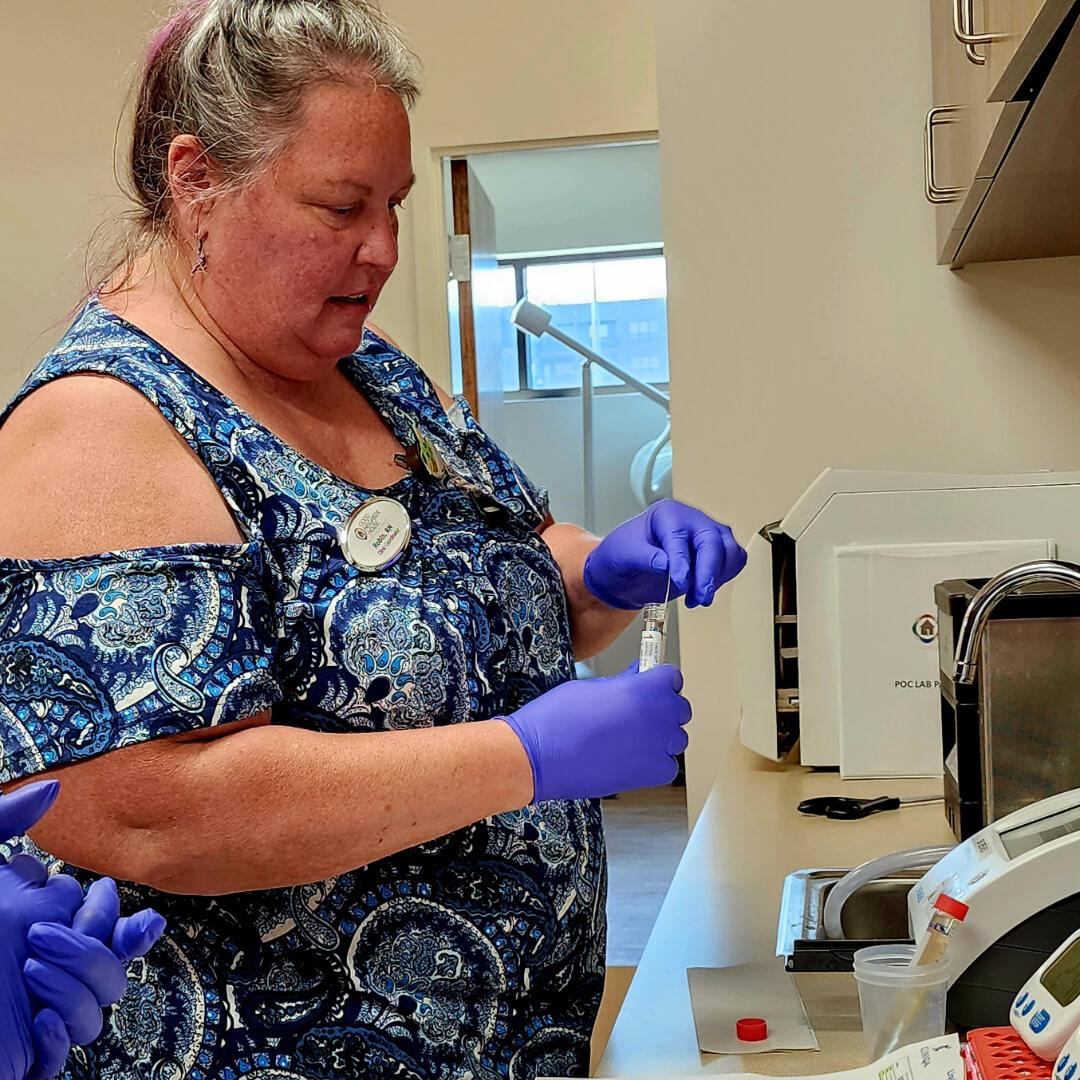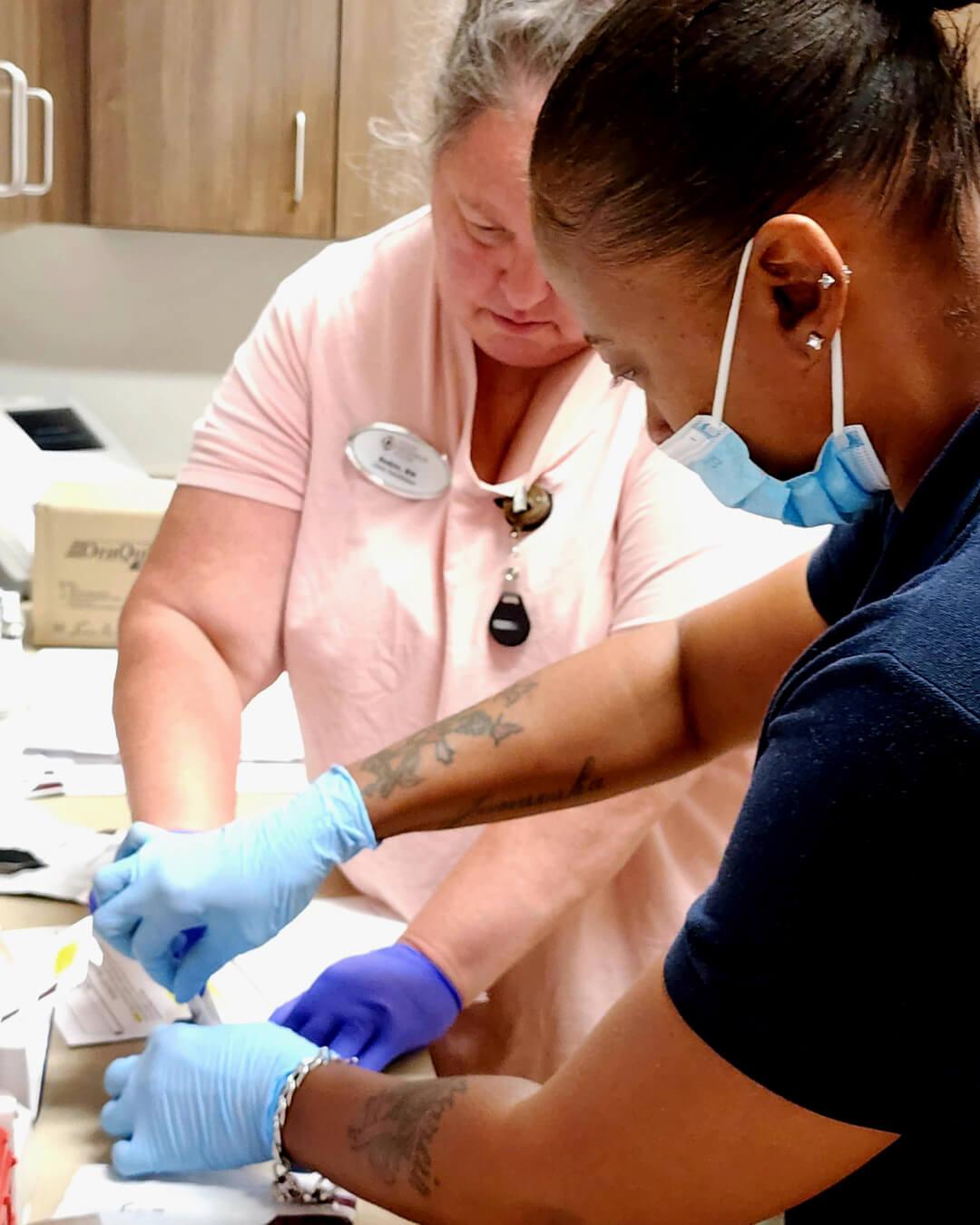
Good Neighbor House in Dayton, Ohio, is dedicated to serving individuals and families in need. Established in 1994 through the collaborative efforts of local churches, it began with a food pantry and clothing services. Over the years, Good Neighbor House has expanded to include a medical clinic and offers eye care and dental services.
A significant aspect of Good Neighbor House’s work involves its food pantry, which addresses the issue of food insecurity by providing essential food items and personal hygiene products to individuals and families in need.
Recognizing the intricate link between nutrition and overall health, Good Neighbor House has also developed a special dietary needs program. This program is specifically designed to support individuals in managing chronic illnesses, such as diabetes, hypertension, renal disease, and obesity.
Point-of-Care Lab Installation
To further enhance its ability to provide effective and timely care, Good Neighbor House was selected as a grant recipient through a collaborative program with Heart to Heart International (HHI), BD, Henry Schein Cares, and National Association of Free and Charitable Clinics. This program provides an on-site lab installation with equipment and training for the clinic staff. It empowers the clinic to conduct on-site testing, enabling faster diagnosis, more timely interventions, and improved patient outcomes.
The laboratory installation was completed in August 2024, and the newly installed lab equipment enables the clinic to conduct a wide range of essential tests in-house, including hemoglobin A1c, lipid panels, hemoglobin levels, urinalysis, urine microalbumin, urine pregnancy tests, and rapid tests for Strep A, influenza, COVID-19, Hepatitis C, and HIV.
The ability to perform these tests on-site means that patients can receive results and begin treatment on the same day, eliminating delays and improving overall care.




Real-Time Impact
The lab equipment has already been making a difference in its first six months of use. The on-site testing capabilities have proven to be a powerful tool in providing comprehensive and patient-centered care. This is especially impactful for patients who are managing chronic illnesses.
For example, consider the case of a patient who came to the clinic with concerns about their diabetes management. The patient, who had recently experienced weight loss, had discontinued their medication. Thanks to the lab installation, With the lab installation, the clinic staff was able to use point-of-care A1c testing to quickly assess the patient’s blood sugar control. The test revealed an elevated A1c level, indicating a need for intervention.
This immediate result allowed the provider to have a detailed discussion with the patient about her condition, adjust her medication dosage, and provide crucial education – all during the same visit. The ability to obtain this critical information in real-time enabled the clinic to provide the patient with the same-day care she needed, preventing potential complications and promoting better health.
Through this lab installation and integrating point-of-care testing into its services, Good Neighbor House has not only enhanced the care it provides but has also demonstrated a commitment to addressing the root causes of health disparities within the community.
